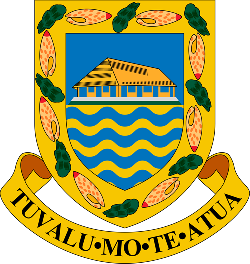Hon. Minister Seve Paeniu, Minister for Climate Change (Finance), and our Director of Climate Change and Mitigation Policy Advisor are in Abu Dhabi attending the Pre-COP28 Meeting. The Climate & Development Ministerial Meeting convened today 29 November, 15:00 – 18:00 at the Emirates Palace Mandarin Oriental, Abu Dhabi. Ministers and institution leaders discussed a draft Climate and Development Ministerial Vision and Three Priority Goals to improve adaptation finance access and delivery.
Video of Te Lafiga o Tuvalu - Tuvalu's Long Term Adaptation Plan (2022)
Resilience Recovery Rapid Readiness Support in Tuvalu
Climate change is a fundamental cross-cutting issue that undermines Tuvalu socio-economic development efforts. Tuvalu’s climate change priorities are articulated in the recently approved Te Kete Sustainable Development Strategy 2021-2030, national climate change policy, sectoral policies as well as in legislation such as the Tuvalu Climate Change and Disaster Survival Fund Act and Regulations. As indicated in the NDC, Tuvalu commits to a reduction of emissions of greenhouse gases from electricity by 100% by 2025.
Development of Tuvalu's National Adaptation Planning (NAP) to advance medium and long-term adaptation planning.
topography, size, geographical remoteness and access to resources. Despite these challenges, it has become a leading voice for enhanced climate mitigation regionally and globally. Tuvalu is now developing a national adaptation planning process (and NAP) that will form a sustainable platform for future adaptation investments.
